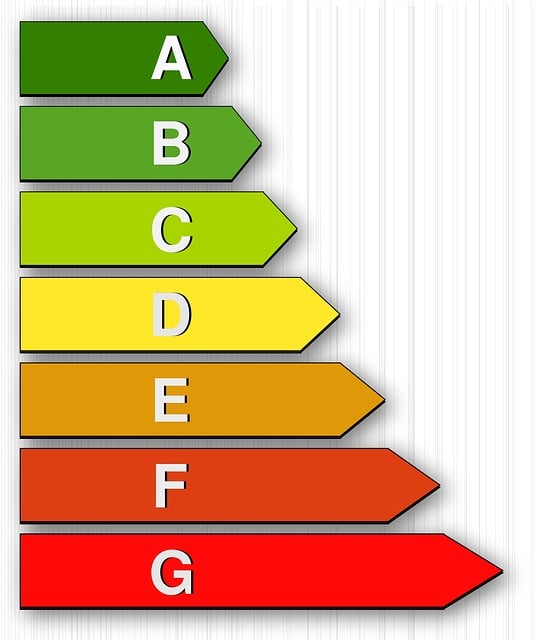TL;DR:
To improve organic search rankings, businesses must adopt a multifaceted strategy focusing on content optimization, technical SEO, and user experience. This involves:
1. Creating high-quality, relevant content tailored to user queries, using strategic keywords naturally.
2. Enhancing website structure with mobile-friendly design, clear hierarchies, and easy navigation.
3. Optimizing for fast loading times, HTTPS security, and image compression.
4. Conducting keyword research to target both short-tail and long-tail keywords effectively.
5. Building high-quality backlinks from authoritative sources in your niche.
6. Fostering user engagement through interactive elements, regular updates, and social media sharing.
In today’s digital landscape, improving organic search results is paramount for online success. This article guides you through a comprehensive strategy to enhance your website’s visibility and climb search rankings. From understanding the fundamentals of organic search and its importance to delving into key factors influencing rankings, we explore effective tactics. Learn how optimizing your site, creating high-quality content, utilizing keywords strategically, and building quality backlinks can significantly improve your organic search performance.
Understanding Organic Search and Its Importance

Organic search is a fundamental aspect of online visibility, referring to the unpaid results that appear in search engine rankings based on relevance and user intent. It’s a powerful marketing tool for businesses aiming to attract organic traffic, which accounts for a significant portion of total website visits. Understanding how organic search works and its significance is crucial for any digital strategy.
When we talk about improving organic search results, it primarily revolves around enhancing your website’s visibility and ranking in search engine results pages (SERPs). Higher rankings lead to increased visibility, driving more relevant traffic to your site. This process involves optimizing various factors, from keyword research and high-quality content creation to technical SEO practices, all aimed at aligning your website with the algorithms that determine these rankings, thereby improving your site’s improve organic search rankings.
Key Factors in Determining Search Rankings

When it comes to improving organic search results, understanding key factors that determine search rankings is essential. These factors are multifaceted and ever-evolving, but some remain steadfast pillars in the realm of SEO. Primarily, search engines like Google rely heavily on content quality and relevance. This means creating comprehensive, informative, and unique content tailored to user queries. The use of targeted keywords naturally and contextually within this content is crucial for signaling to search algorithms what your page is about.
Additionally, site structure and navigation play a significant role in boosting organic search rankings. A well-organized, mobile-friendly website with clear hierarchies and easy-to-use menus aids both users and search engine crawlers in navigating the site. Fast loading times, secure connections (HTTPS), and optimized images further enhance user experience, signaling to search engines that your site is of high quality and worth ranking highly.
Optimizing Your Website for Better Visibility

Optimizing your website is a crucial step in improving organic search results and boosting your website’s visibility. This involves a multi-faceted approach to ensure your site appeals to both users and search engine algorithms. Start by conducting thorough keyword research to identify relevant terms that your target audience uses when searching for products or services similar to yours. Incorporate these keywords naturally into your website content, including titles, headings, meta descriptions, and body text.
Additionally, focus on creating high-quality, engaging content that provides real value to visitors. Regularly update your site with fresh content, such as blog posts, articles, or videos, which not only keeps users engaged but also signals to search engines that your website is active and authoritative. Ensure your website is mobile-friendly, as the majority of internet traffic now comes from mobile devices. Implement responsive design, fast loading times, and easy navigation to create a seamless user experience. These factors contribute significantly to improving organic search rankings and driving more relevant traffic to your site.
Creating High-Quality, Relevant Content

Creating high-quality, relevant content is a cornerstone in improving organic search rankings. This involves understanding your target audience and their information needs, then crafting content that addresses these queries comprehensively and authoritatively. Content should be unique, well-structured, and optimized with strategic keywords to enhance readability and relevance for both users and search engines. Regularly updating and expanding this content can also boost its value and visibility in search results.
Relevancy is key here. Aligning your content closely with user search intent ensures that when individuals type queries related to your niche into a search engine, they find your website among the top results. This not only increases traffic but also fosters trust and credibility, as users are more likely to engage with content that meets their expectations.
Utilizing Keywords Effectively

To improve organic search results and boost your website’s rankings, effective keyword utilization is paramount. Keywords are the foundation of any successful SEO strategy, acting as a bridge between searchers’ queries and your content. When optimizing your content, deeply consider both short-tail and long-tail keywords relevant to your niche. Short-tail keywords, though competitive, attract high search volumes and can significantly enhance your website’s visibility. Long-tail keywords, on the other hand, are more specific and less crowded, making them powerful for targeting a defined audience and driving qualified traffic.
Integrate these keywords seamlessly into your web page titles, meta descriptions, headings (H1, H2, etc.), URL structures, and, most importantly, high-quality content. Avoid keyword stuffing, as it can lead to poor user experience and potential penalties from search engines. Instead, focus on creating valuable, informative, and engaging content that naturally incorporates keywords, ensuring a harmonious blend that resonates with both search algorithms and your target audience.
Building Quality Backlinks and Promoting User Engagement

Building quality backlinks is a cornerstone in improving organic search rankings. These links, earned from reputable and relevant websites, signal to search engines that your content is valuable and trustworthy. Strategize by identifying industry influencers, creating shareable assets like infographics or studies, and reaching out for guest blogging opportunities. The quality of these backlinks matters more than quantity; ensure they come from authoritative sites within your niche.
Promoting user engagement further enhances your SEO efforts. When users actively interact with your content, it tells search engines that your site offers a positive experience. Encourage engagement through interactive elements, regular updates, and responsive customer service. Social media sharing and user-generated content also play significant roles in increasing visibility and establishing your brand’s authority, ultimately contributing to higher organic search rankings.
